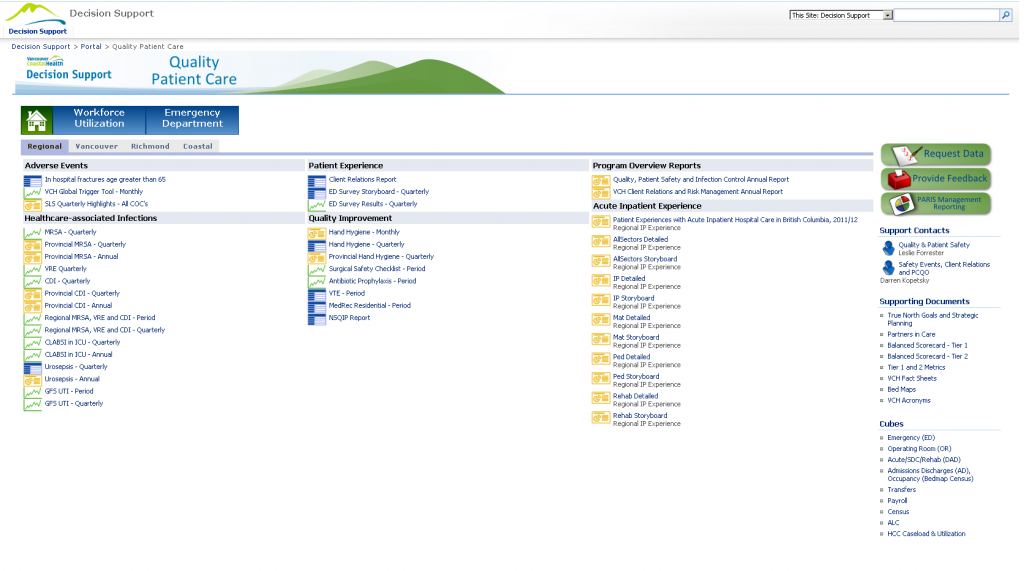 Vancouver has been implementing MedRec at admission throughout acute care, ambulatory care, community (mental health, addictions and home care), residential and primary care. Full implementation is expected to be reached by the end of 2013, with only the ambulatory care clinics remaining at this time.
Vancouver has been implementing MedRec at admission throughout acute care, ambulatory care, community (mental health, addictions and home care), residential and primary care. Full implementation is expected to be reached by the end of 2013, with only the ambulatory care clinics remaining at this time.
Thank you to all staff involved in MedRec for your commitment and dedication to patient safety and quality care. It’s this commitment that helped Vancouver achieve 100% compliance with Admission MedRec[1] in the November 2012 Accreditation Canada survey report.
Admission MedRec is an important component on the MedRec journey, as it lays the foundation for the transfer and discharge MedRec processes. Incomplete transfer of medication information at transitions of care may result in unintended changes to medications. Related to this, Dr. Corinne Hohl led the first study of the health outcomes and cost of patients who have presented to the emergency department with an adverse drug event. The study built on earlier research where the team discovered that one in nine patients who present to the emergency department is suffering an adverse drug event.[2][3]
For more detailed information on your unit/area MedRec results, please visit the Quality Patient Care Portal:
- VGH
- UBC
- Residential
- Coming soon: Community and Ambulatory care
To assist with identifying the appropriate forms, Medication Reconciliation chart tabs will soon be introduced on each acute care unit. Each unit is responsible for reorders via EPro (00094757).
As part of the MedRec process we encourage a proactive partnership with patients, their families and/or care providers by supporting their endeavours to keep an up-to-date list of all their medications. To assist, “My Medication Card” is available for patients/clients. These cards come in four languages: English, French, Chinese and Punjabi and are available to order from VCH Printing Services. The MedRec team encourages everyone to take advantage of this opportunity to include patients in our conversations about their medications.[4]
For more information on MedRec please visit the regional website.
[2] http://www.annemergmed.com/webfiles/images/journals/ymem/cmhohl.pdf
[3] http://vchconnect.vch.ca/programs_services/vchnews/across_vch_/archive_2011/page_90496.htm
[4] http://vchconnect.vch.ca/programs_services/vchnews/across_vch_/stories/page_107201.htm
